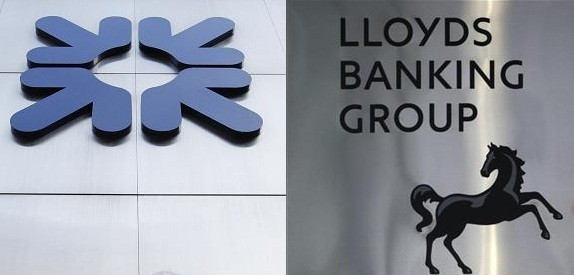Lloyds and RBS Privatisation Process Gets Under Way

The process of privatising state-owned Royal Bank of Scotland Group and Lloyds Banking Group has started with investment banks being asked to submit proposals on why they should be considered advisers for the deals.
UK Financial Investments (UKFI), which manages the government's stakes in the groups, say investment banks have until 8 July to submit proposals on the selling of the state's shares in Lloyds and RBS.
The UK government is looking to appoint a bookrunner, co-lead managers, capital markets advisers and strategic advisors for the share sales.
RBS and Lloyds are 81% and 39% owned by the taxpayer respectively, and analysts say that returning them to private ownership will help the incumbent Conservative Party win support in time for the next national election in May 2015.
Britain's previous Labour-led government originally injected £66bn (€78bn, $102bn) of taxpayers' money into RBS and Lloyds to save them from collapse.
Chancellor George Osborne's recent statements on its future during his annual Mansion House speech in the City of London suggested that Lloyds is in a better position than RBS to return to privatisation.
Osborne indicated that RBS would not be sold, as he had hoped, before the next parliament in 2015.
"I don't want a quick sale of our RBS shares. I want the right sale for British people," Osborne told financiers.
Last week, IBTimes UK highlighted that Lloyds' plans to return to privatisation by 2014 could be delayed as the bank struggles to offload hundreds of its branches under terms of its state bailout.
RBS having similar branch sale problems, under rescue package terms and conditions, but the Church of England revealed today that it is ploughing millions of pounds into a bidding consortium, which is looking to buy more than 300 of these units.
Earlier this month, one of Britain's most influential think tanks, Policy Exchange laid out a blueprint on how the UK government could hand back a majority of RBS and Lloyds shares back to the taxpayer while also stabilising the partly state-owned entities.
Meanwhile, the Parliamentary Commission on Banking Standards proposed that the government should hive off RBS' toxic assets into a 'bad bank', in order to stabilise the group and prevent problems in privatisation.
© Copyright IBTimes 2025. All rights reserved.





















